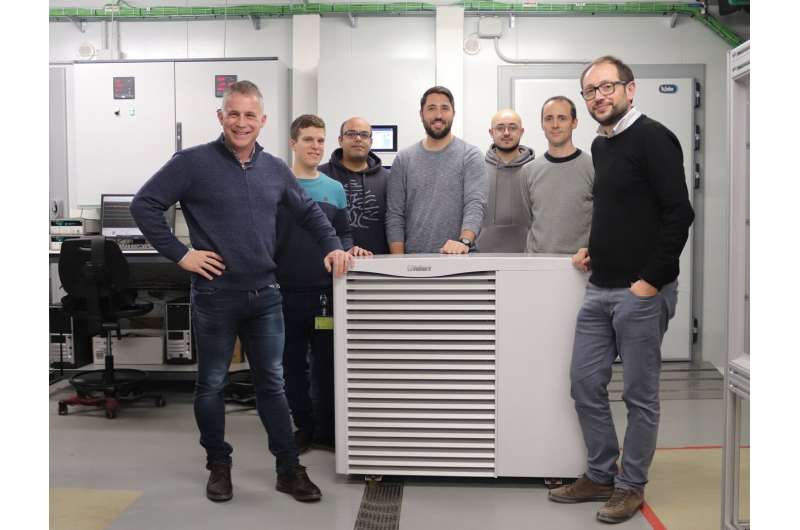The first heat pump for domestic use with zero carbon dioxide emissions

"It is the first domestic commercial unit with zero direct and indirect emissions. Currently, there are already units that use the same technology as ours, which is aerothermal energy, but they do not use a natural fluid such as propane in it. For this reason, our pump can heat homes being totally respectful with the environment, without emitting carbon dioxide to the atmosphere. Furthermore, its high energy efficiency allows it to be classified as renewable energy, by pumping energy from the environment," underlines José Gonzálvez, Director of the Thermal area at the University Institute for Research in Energy Engineering of the Universitat Politècnica de València.
Among its advantages, the heat pump developed by the UPV and Saunier Duval can also generate hot water for heating at temperatures of up to 75ºC with very high energy efficiency, something that is not possible with conventional heat pumps. Additionally, it can be installed not only in newly built buildings, but also to replace gas boilers in existing buildings. And it also allows the application of anti-legionella treatment without requiring external support.
The unit is high efficiency (A+++), so for each kWh of electricity consumed, it produces 6.48 kWh of heating for the home. Regarding the production of domestic hot water, for each electrical kWh consumed, it generates 4.43 kWh.
"In the technical development that has been carried out, it has been possible to achieve energy efficiencies similar to those of currently used refrigerants, with high Global Warming Potential (GWP). To do this, we carried out an analysis of the best configuration for vapor compression cycle adapted to the refrigerant used—propane—minimizing the amount used and optimizing the control parameters of the unit," explains José Gonzálvez.
"And for the coming years, the main challenge will be to increase the efficiency of this equipment at low ambient temperatures and provide it with an intelligent system that allows early detection of failures or degradation of its efficiency over time," concludes José Gonzálvez
Should you get a heat pump? Here's how they compare to a gas boiler
Provided by Universitat Politècnica de València
No comments:
Post a Comment